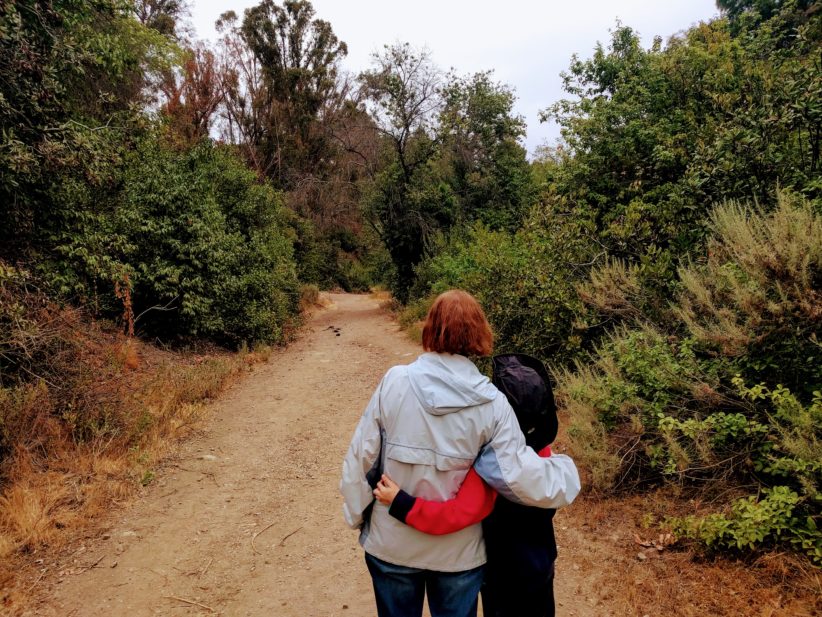This past week I went hiking with an intellectually rigorous friend. He is a law professor, and part of the pleasure of our friendship is that we often come at a similar problem from different analytical angles. He's also one of the folks I can freely geek out over finance with, knowing his eyes won't glaze over.
I was describing to him how we were addressing our major family expenses: housing, transportation and food. I'd assumed these were the Big Three expenses based on foundational FI blogs like Early Retirement Extreme where this hierarchy is taken for granted.
My friend challenged my assumption. He conceded that housing in our area is expensive and would make the cut, but suggested that transportation is a fairly minor expense for us. He further asserted that since we eat out once or twice a month, our eat-at-home food sourced from Costco and Trader Joe's was unlikely to constitute a big portion of our annual budget.
He made some educated guesses: he assumed we pay more for services (we pay for help with child care, cleaning house, laundry and cooking), health insurance (high deductible health plan for our family of 4) and travel (we are taking our biggest family trips ever this summer and will be abroad for a total of 5 weeks).
Turns out he was completely right.
A quick look at Personal Capital showed that our number one expense was mortgage, followed by services (as noted above) and then health care, taxes, other insurance (life, disability, auto, umbrella, homeowners), travel, then groceries. The silver lining is that our health care is paid via our corporation with pre-tax dollars, which lessens the sting.
Services are a tough one. We got lucky out of the gate with our nanny, and she is a true treasure. In eight years she's never missed a single day of work, which is huge since I'm often coming off of a night shift as my wife leaves for a day shift. My wife is a neat freak, and swears that the services are worth it to her. I'm top 10% for a guy, but not up to my wife's exacting standards of cleanliness, so if I kept house she'd likely judge my efforts inadequate.
Our kids are getting older and need less child care, but if we suggested part-time or a nanny-sharing arrangement we fear she might leave us altogether for a more secure paycheck with more guaranteed hours. My wife suggests we'd spend an equal sum on marital counseling if we let her go, only half in jest. As long as we own more house than we need, the cleaning and maintenance costs will remain a source of tension.
Transportation is a negligible cost for us. Our used 9 year old Kias and 15 mile round-trip commutes to the hospital once or twice a week are inexpensive. Gas and auto maintenance costs are consistent with driving beaters over short distances for work and supply runs. Our kids are fortunate to walk to and from school daily, helping to both build their health and eliminate a recurrent cost.
This year's summer travel will take a bigger bite than usual. We are going to destinations where costs are relatively inexpensive once you arrive (Mexico, Greece) but since I have not yet begun to travel hack for airline points, the flights in and out were the costliest part of our plans. This will serve as motivation to unfreeze our credit accounts just long enough to apply strategically for credit cards so we can fly free next year.
Once there we will be staying at modest airbnb rentals, eating breakfast in our rentals, packing picnic lunches, and enjoying dinner at inexpensive restaurants (the gelato and coffee budget will be unrestrained by design).
We tend to prefer airbnbs to hotels, largely because the layouts are more family friendly, the kitchens are a huge asset in controlling our food costs for breakfast and lunch, and (to paraphrase Rick Steves) spending more money on housing builds a thicker wall separating you from the culture and people you came to see. Travel and life are about what happens when you cross paths unexpectedly, and airbnbs foster that messy beautiful experience more than hotels.
The wife and I reviewed our insurance this past year, and considered cancelling our disability and life insurance. Having reached basic FI (24X our annual expenses in savings) I suggested we could self-insure against catastrophe. She is risk averse, and prefers to see us develop a larger buffer (33X) before we cancel our policies. Happy wife, happy life, so I conceded the point.
Take home point: For physicians and other high-income professionals, the big three fixed costs of housing, transportation and food, which constitute the top expenses for most people, may not accurately reflect your three greatest annual expenses. Verify your assumption with a free tracking tool such as Mint or Personal Capital.


